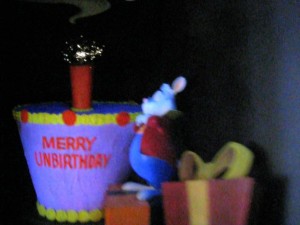The 20th century turn toward domestication essentially stems form Ezra Pound’s translations, but impurely, through the modern emphasis of the author mixed with the business of selling books.
According to Ronnie Apter in Digging for the Treasure: Translation After Pound, Pound influenced translation theory and practice in three major ways. First, was the move from “Victorian pseudo-archaic translation diction” to modern style. Second, is by arguing for a criticism of the original in some form: not simply the objective transfer (an acknowledged impossibility by the Victorians as well), but to focus on some particular element and thereby “criticize.” And finally, the creation of a new poem: not just something derivative.
These three were all essential breaks with both the Victorian practice, which focused on three criteria: paraphrase with no additions (subtractions were inevitable, but additions were taboo), the reproduction of the author’s traits (just what the traits were was, however, up for grabs), and the reproduction of the overall effect of the text (whether the “effect was of the original on the original’s original audience, or the original on the modern audience who can read the original text is unknown). It was also an adaptation with the contemporaneous translation theory professed by Matthew Arnold and F. W. Newman.
However, while Pound was translating against the Victorian grain, we have come full circle to a new norm. The fashion of the times has changed to one that embraces Pound’s basics, but not the depths. If “great translators transcend the fashion of their times [and] minor ones merely manipulate it” Pound was a great translator, many minor figures have manipulated his transcendence, but Pound himself would simply be one of any in the current fashion. As Lawrence Venuti has argued, the times and dominant style have changed and another transcendental shift is called for.
What I want to argue is that this shift is called for by the media itself. The move from literary page translation to multimedia and digital forms leads into new possibilities for and understandings of translation. In an interesting way, however, it is Pound’s logopoeia, his style of meta-translation, that can still lead the way. Whereas Pound focused on the meaning of words to bring into focus both the older era and the present, a type of dialectical juxtaposition, the move toward searchable, digital data in opposition to static, analogue data allows the simultaneous existence of both data sets and a new type of logopoeia. This new form of meta-translation involves the layering of translational tracks. Instead of juxtaposition, there is the coexistence of both tracks/languages/cultures.
This is similar to the possibilities evoked by subtitles and abuse (Nornes), but it considers the issue in relation to digital, new media and not simply film considered in an analogue manner. Instead of the ability to simply choose one or another track/language, it gives all, or switches between languages. It renders the possibilities of putting three real languages into a game such as Command and Conquer: Red Alert 3 (English, Russian and Japanese to use the fictive world), but more meaningfully (and less deliberately/offensively stereotypically), of switching them on the fly so that one game has the US speaking English, the Russians Russian and the Japanese Japanese, but another switches so that the US speaks Japanese, the Russians English and the Japanese Russian. The media uses its ability to draw from the swappable data files not to simply replace one with another, thereby changing one representation into another, but to abuse the user with a constant active experience that questions the submerged normativity of language that exists with translated entertainment products (games in particular) at present.


